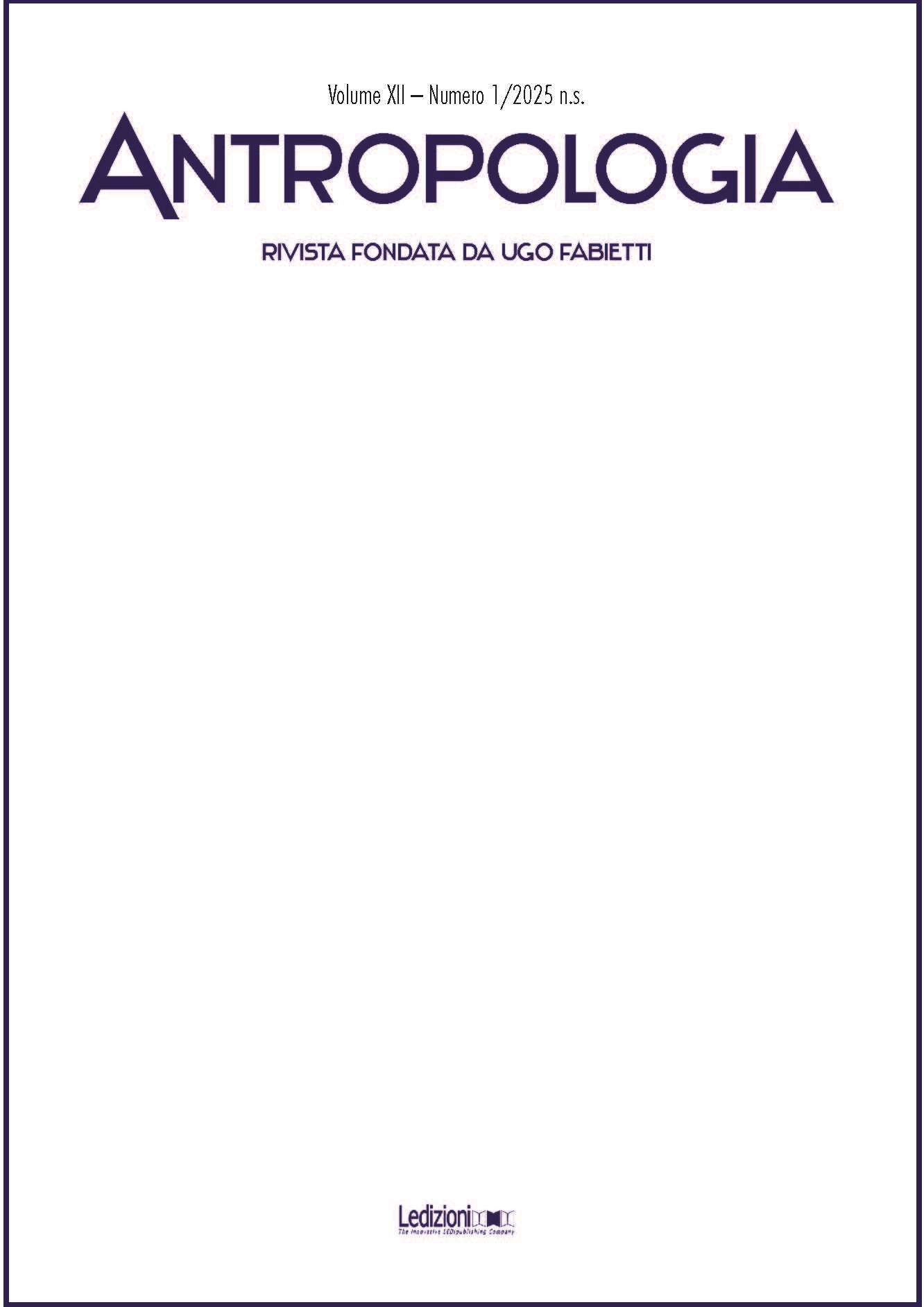Afterword. Anthropology and the interdisciplinary research
DOI:
https://doi.org/10.14672/ada20251pp97-108Keywords:
anthropology, interdisciplinary research, bi-disciplinarity, ItalyAbstract
Since the mid-nineteenth century, anthropology has focused on the “totality” of human experience in different societies, covering areas such as technology, thought, values and rituals. In doing so, anthropology has generated comparisons and exchanges with other sector-specific disciplines that deal with particular areas of human experience. In more recent years, however, comparisons between different disciplines have sometimes given rise to opposition and misunderstandings over methods of data collection and analysis, as well as over quantitative versus qualitative approaches and whether to focus on normative or diverse values. The most successful approach has been “bi-disciplinary collaboration and exchange”, creating areas of dual expertise such as medical anthropology, legal anthropology, environmental anthropology and urban anthropology. International literature on the subject has also focused on the organisation of multidisciplinary university departments and international projects, which are now almost exclusively of this type. This has sometimes generated innovative and creative conceptions of a new “trans-disciplinarity”. The essays in this special issue mainly deal with cases of relationships between anthropological research and various natural sciences, ranging from eco-biology to medical and environmental sciences. They also carefully document the significant challenges in achieving equal and non-hierarchical exchanges between disciplines for mutual enrichment.
Downloads
Published
Issue
Section
License

This work is licensed under a Creative Commons Attribution 4.0 International License.
Authors maintain the copyright of their original work and grant the Journal the right to first publication, licensed after 36 months under a Creative Commons Licence – Attribution, which allows others to share the work by indicating the authorship and first publication in this journal.
Authors may agree to other non-exclusive licence agreements for the distribution of versions of their published work (for example in institutional archives or monographs) under the condition that they indicate that their work was first published in this journal.



